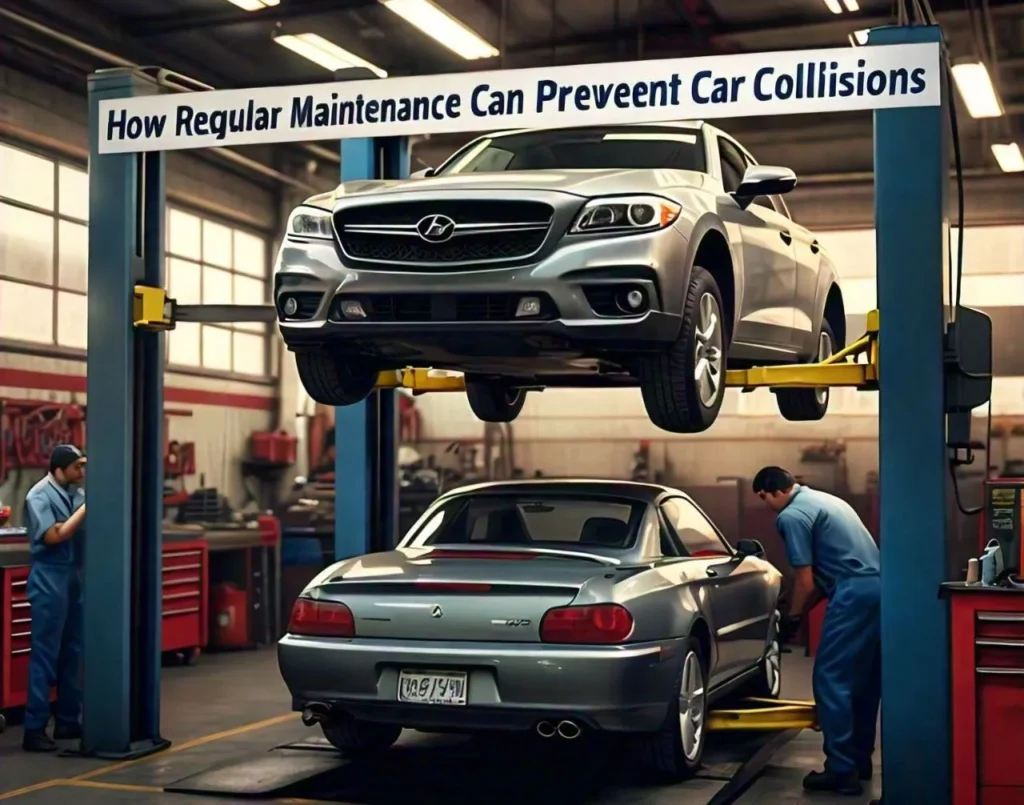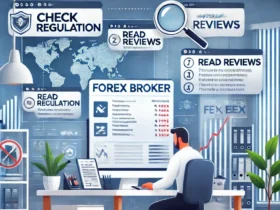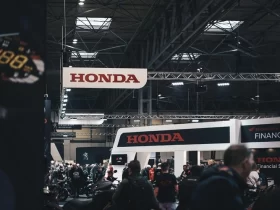Ensuring the safety of your vehicle is paramount, and one of the most effective ways to do this is through regular maintenance. Many car collisions are preventable, often resulting from neglected vehicle maintenance.
This article will explore how consistent upkeep can help prevent accidents, the benefits of regular maintenance, and practical tips to keep your vehicle in top condition.

Also Read: How to Choose the Right Car for Long-Term Reliability
Common Vehicle Maintenance Issues That Lead to Collisions
Don’t let a preventable car issue turn into a collision!
Here are some common vehicle maintenance problems that can lead to accidents, and how to avoid them:
Worn-out Tires
Tires are the only part of your vehicle that directly contacts the road. Worn-out tires can reduce traction, especially in adverse weather conditions, increasing the likelihood of collisions. Regularly checking tire tread and pressure is crucial for maintaining control of your vehicle.
Faulty Brakes
Brakes are essential for stopping your vehicle safely. Faulty brakes can lead to longer stopping distances or complete brake failure, which can be catastrophic. Regular brake inspections and replacements are necessary to ensure they function correctly.
Engine Problems
An engine that is not well-maintained can stall or fail while driving, creating dangerous situations on the road. Regular engine diagnostics can help identify and fix issues before they become serious problems.
Malfunctioning Lights and Signals
Lights and signals are vital for communicating with other drivers. If they are not functioning correctly, it can lead to misunderstandings and accidents. Regularly checking and replacing bulbs can prevent these issues.
A must read: Make Your Car Your Own By Adding a Personal Touch
Regular Maintenance Checks
Regular maintenance is essential for keeping your vehicle in optimal condition and ensuring your safety on the road. By staying proactive with these key checks and replacements, you can enhance performance, reduce the risk of unexpected breakdowns, and prolong the lifespan of your vehicle.
- Tire Inspections and Replacements: Regularly inspect your tires for wear and tear. Replace them when the tread is low or if you notice any damage. Keeping tires properly inflated is also crucial for optimal performance.
- Brake System Checks: Have your brake system inspected regularly, including pads, rotors, and brake fluid levels. Replace parts as needed to ensure the system functions correctly.
- Engine Diagnostics: Schedule regular engine diagnostics to catch and fix any issues early. This includes checking the oil, coolant, and other fluids, as well as ensuring all engine components are working correctly.
- Light and Signal Inspections: Check all lights and signals frequently to ensure they are operational. Replace any burnt-out bulbs immediately to maintain visibility and communication with other drivers.
- Fluid Level Checks: Regularly check the levels of essential fluids like oil, coolant, brake fluid, and windshield washer fluid. Keeping these at the appropriate levels ensures your vehicle runs smoothly and safely.
Importance of Maintenance
Regular vehicle maintenance is essential for ensuring road safety and preventing accidents. Keeping components such as tires, brakes, engine, and lights in good working order can significantly reduce the risk of collisions. For instance, well-maintained brakes ensure proper stopping distances, and regular tire checks prevent traction issues.
Proper maintenance involves routine engine diagnostics to catch issues early, and regular checks of fluid levels, including oil, coolant, and brake fluid, to keep the vehicle running smoothly. Understanding the financial benefits of maintenance is also important, as the cost of repairing scratched rims, for example, is minor compared to major repair costs due to neglect.
Understanding the financial benefits of maintenance is also essential. Regular maintenance and properly fixing damages that may seem small can help avoid costly repairs down the road. I recently found a website with helpful information about various auto repair costs, ranging from “scratched rim costs” to “full-auto hail damage repair costs” from a Denver collision repair shop. I bookmarked it for future reference in case I need a repair job.
Tips for Keeping Up with Regular Maintenance
Following the Manufacturer’s Maintenance Schedule
Refer to your vehicle’s manual for the manufacturer’s recommended maintenance schedule and adhere to it.
Keeping a Maintenance Log
Maintain a log of all maintenance activities to keep track of what has been done and what needs attention.
Being Proactive About Small Repairs
Address small issues promptly before they become significant problems. For instance, understanding the cost of repairing scratched rims versus ignoring them can save you money and prevent further damage.
The Financial Aspect of Maintenance
Cost Comparison of Regular Maintenance Versus Major Repairs
Regular maintenance is generally more affordable than major repairs. Preventive care can save you from costly repairs down the line.
How Investing in Maintenance Can Save Money in the Long Run
Regular maintenance can extend the lifespan of your vehicle, ultimately saving you money by delaying the need for a new car and reducing repair costs.
Conclusion
Regular maintenance is crucial for preventing car collisions and ensuring the safety of both drivers and passengers. By staying vigilant about vehicle upkeep, you can improve performance, avoid unexpected breakdowns, and save money. By prioritizing these practices, you contribute to safer roads and a more reliable vehicle.











